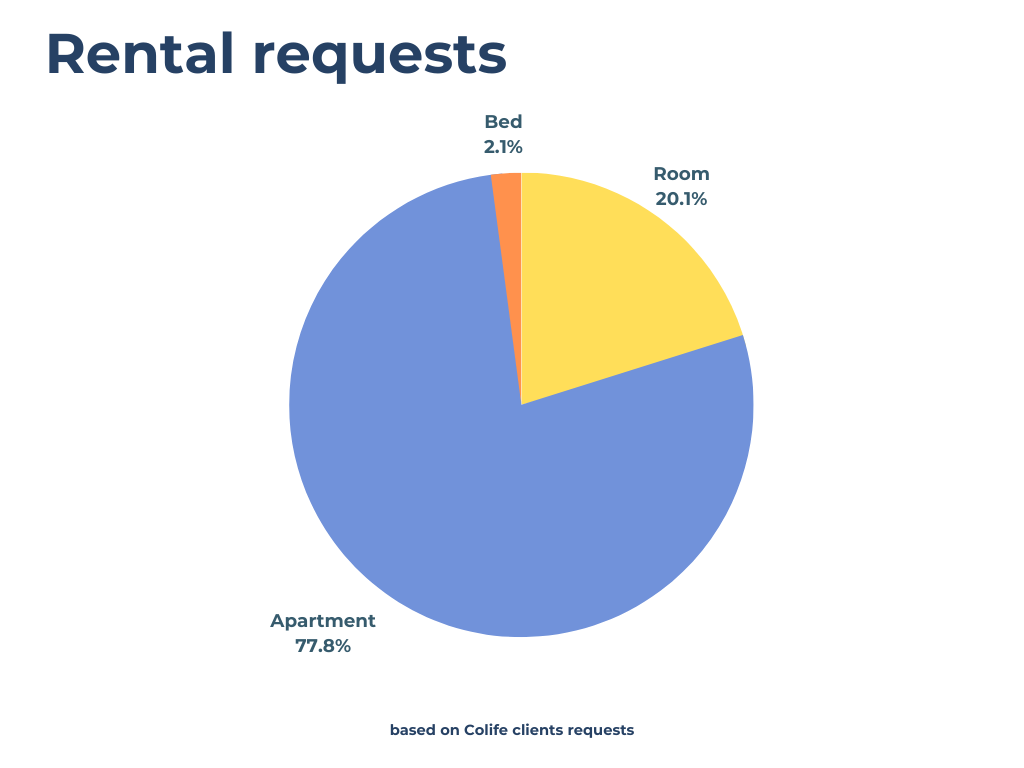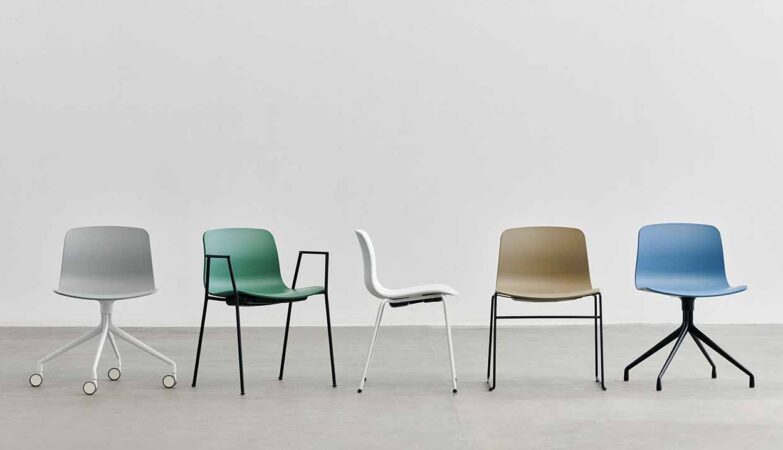
According to the General Directorate of Residency and Foreigners Affairs of Dubai, in the first half of this year the city recorded an increase in the issuance of resident visas by 63% compared to the same period last year. According to the consulting company Knight Frank’s forecast, the population of Dubai is expected to double by 2030.
Naturally, the increase in population leads to a demand for property rentals. There are co-living buildings where residents live in separate apartments and share common spaces in Dubai. However, organizing cohabitation in a flat-sharing format (when tenants renting individual rooms in one apartment) isn’t possible. There is simply no legal basis for this. Yet the demand for flat-sharing exists!
— Among the inquiries received from our clients for rental accommodation, 77.6% are interested in renting an entire apartment, 20.1% are looking for a separate room, and 2.1% are considering a sleeping space, — says Ilnara Muzafyarova, CEO of the rental company with included service Colife.
Colife operates under a holiday homes/vacation homes license, allowing the leasing of apartments. The provisions of the license are regulated by Dubai’s tourism legislation (specifically Decree No. (41) of 2013 Regulating the Activity of Leasing out Holiday Homes in the Emirate of Dubai and Administrative Resolution No. (1) of 2020 Issuing the Implementing Bylaw of Decree No. (41) of 2013 Regulating the Activity of Leasing out Holiday Homes in the Emirate of Dubai). These regulations are established by the Dubai Economy and Tourism Department, responsible for overseeing tourist activities in the emirate. Holiday homes/vacation homes rules prohibit shared living in one room or in separate rooms within an apartment. Furthermore, there is no license that permits flat-sharing.
The continuing growth of rental prices is leading to situations when people with a limited budget opt for apartment sharing. In such situations lease agreements are officially made with one tenant, but in reality multiple individuals end up living in the same apartment. This gives rise to ‘gray areas,’ fostering the existence of unregulated flat-sharing.
Clients turning to Colife for rental property selection are typically individuals aged 25–34, employed in various sectors such as real estate, marketing, information technology, and the arts. According to the company’s statistics, these clients predominantly hail from Eastern Europe (29%), the United Kingdom (18%), the Middle East and North Africa (16%), Pakistan (12%), CIS countries (9%), Africa (8%), and India (5%).
— Based on our clients’ requests, we observe that the format and budget for the majority of them fall outside the market realities. People turn to us because they want to live in fully equipped housing with a stylish interior, in an area with convenient transportation links and a good balance of price and quality. In addition, with our 24/7 service they don’t need to worry about cleaning, utility payments, and other household matters.
However, we can only offer them apartments, not individual rooms or sleeping space. Flat-sharing is a relatively new housing format that allows renting comfortable accommodation at a cost affordable to young professionals. Such rental options are not available for those coming to Dubai. For example, we primarily lease properties in the flat-sharing format in Istanbul. It has gained popularity among digital nomads and students.
We analyzed the requests of our clients in Dubai and found out that over half of them have a budget of up to 7.000 dirhams (6.000 – 7.000 dirhams — 20.9%, 5.000 – 6.000 dirhams — 5.4%, 4.000 – 5.000 dirhams — 18.1%, and 2.000 – 4.000 dirhams — 17.9%). In the meantime, minimum cost of renting a studio in Colife is 7.900 dirhams. This means that only 37.4% of our clients can afford the rent (23.9% with a budget of 7.000 – 10.000 dirhams, 8.9% — 10.000 – 12.000 dirhams, 4.6% of our clients have a budget for rent exceeding 12.000 dirhams).
In the flat-sharing format we could meet the demand for 36% of incoming requests by offering rooms in stylish 5-bedroom apartments in the Dubai Marina for 4.000 dirhams per month.
Regarding living arrangements, 48.5% of our clients intend to rent accommodation alone, 21.5% are couples, 17.8% are families, and 12% want to rent with friends. We also found out that among our clients 72.7% are coming to Dubai for work and 27.2% are relocating. Among them, 72.7% plan to stay in Dubai for more than a year, 13.6% for over 6 months, and 13.6% for 1 to 3 months, — Ilnara says.
Dubai has already taken many steps towards liberalization. For example, cohabitation is legal for many foreigners, but in order to stay comfortably in Dubai, they had to get married before. Recently, the city lifted the ban on unmarried couples residing in the same hotel room.
In doing so, Dubai has demonstrated its commitment to meeting the needs of people arriving in the city, aligning with global trends. The next crucial step on this path is the legalization of flat-sharing.










